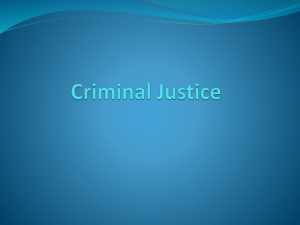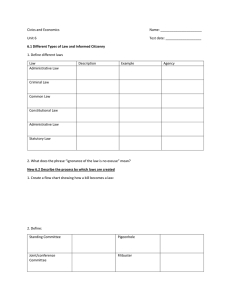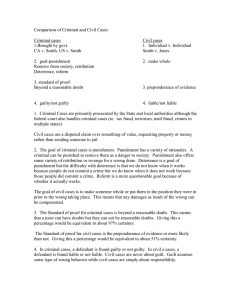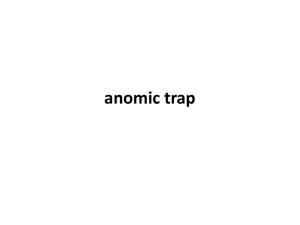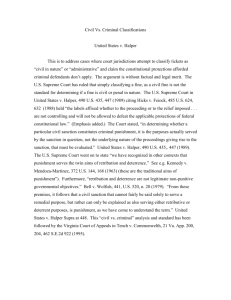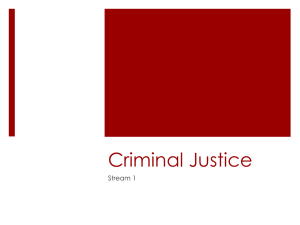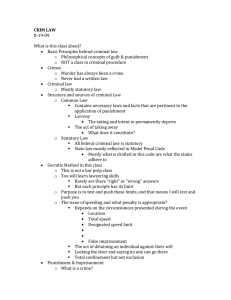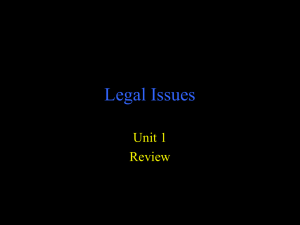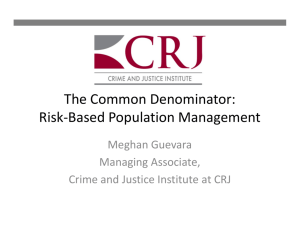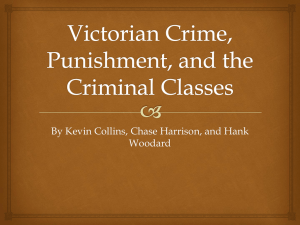Criminal Justice System - Warwick Debating Society
advertisement
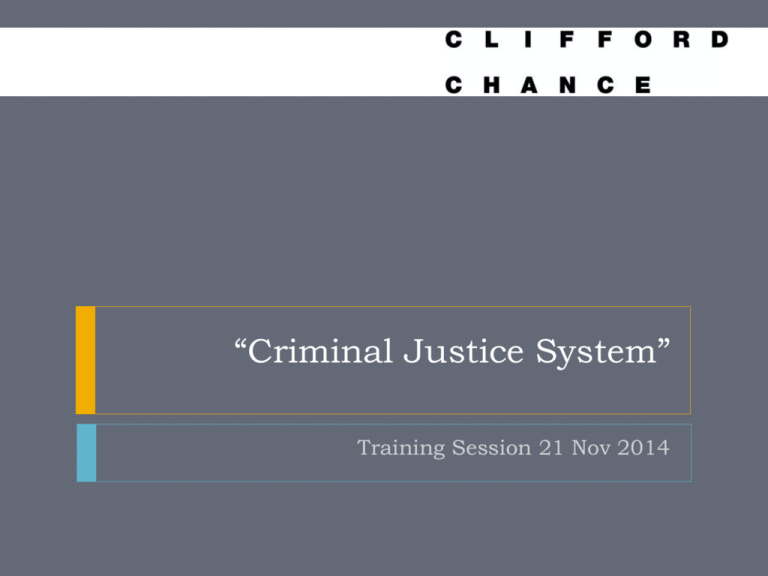
“Criminal Justice System” Training Session 21 Nov 2014 Purpose of CJS • • • • • Punishment Protection Deterrence Rehabilitation Which ones are more important/ Should be prioritised? Punishment (retribution) • Criminals ought to suffer in some way • This is due to them taking improper advantage or inflicted unfair detriment on another individual. • ‘An eye for an eye’ – but probably not – more restoring a moral balance or a power balance. • Breaking the social contract – and is the symbolism of society’s recognition that you have broken their law. Problems with punishment (retribution) • ‘Two wrongs don’t make a right’. • Is wholly backward-looking, doesn’t focus on creating more good – but creating harms to ‘mitigate previous harms’ – a scenario making little sense. • Brutalises society in extreme cases – people take a form of pleasure in the suffering of others. • Victims are irrationally barbaric in this situation. Protection • Keeps criminals away from society so society is protected from their misconduct. • Obvious utilitarian benefit. Problems with protection • Got to let them out at some point (or maybe you don’t... But that would be inhumane) • Clearly not absolute – or we’d be cutting hands off thieves (or at least giving them the option). Deterrence • Imposing a sufficient penalty is necessary in order to disincentivise criminal behaviour. • Sets an example to society ‘don’t do this or this will happen to you.’ Problems with deterrence • Many criminals don’t consider the consequences of their actions. • Often it is merely the threat of being caught, rather than the severity of the punishment. • Indeed, making a punishment large enough so that it balances the utility of committing the crime often makes it a disproportional and unfair punishment. Rehabilitation • Transforms offenders into valuable members of society. • Prevents further offense by persuading the criminal that their action was wrong. • Often people’s actions were influenced by their environment in society e.g. Growing up in a rough area, so the state has failed and hence takes on a duty of reparation towards the criminal. Problems with rehabilitation • Practically – it doesn’t work. • Not sure which rehab programmes work on whom. • Depends on individual’s psychological background. • Is it really possible to change a life-long socially acquired set of values? • Prisoners often pretend to have rehabilitated in order to get early release. Sentencing • Are prisons the best option? • Alternatives: – – – – Community Service Fines Drug courts Restorative Justice • This is also important to look at in terms of models even in debates not directly related to prisons per say. Police • Are they effective/ ineffective? • Should there be more (or less) of them? • Should they be given greater means to carry out their job? Courts • Two broad types of court cases: Criminal and Civil – Criminal Cases consist of the stat prosecuting individuals or companies – Civil cases cover all other kinds of disputes between people, from enforcing broken contracts to assigning liability to car crashes etc. • Burden of proof – Criminal Cases: almost always lies with the prosecution to show that a defendant is guilty of whatever crime he or she is accused of. – Civil Cases: is on each side to support their own claims • Purpose of juries – Should we keep them or not? – Should we take them from a select group of society? (i.e. trial by people of the same socio-economic group, race etc. as you)
